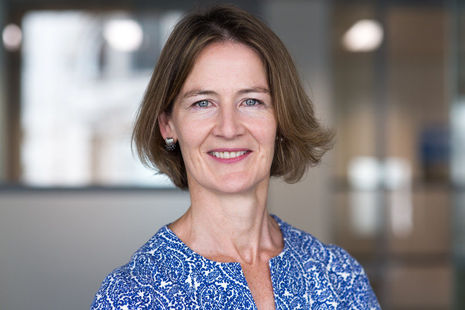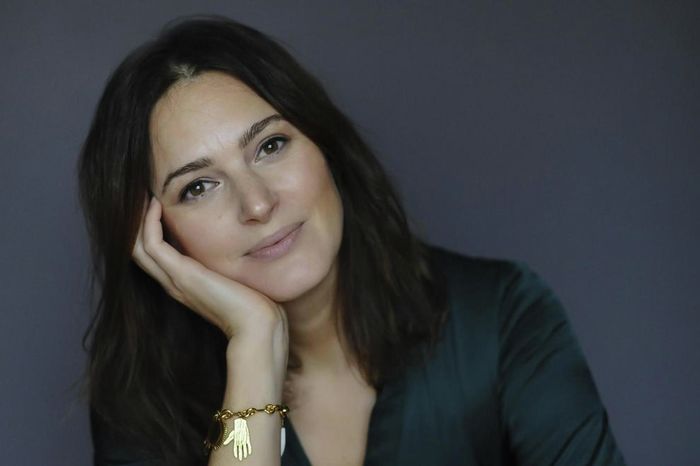Balancing people and profits: in conversation with Sally Procopis
Olivia Young speaks to the COO of Bates Well about making her executive team fully female, and her firm’s status of a ‘B Corporation’.

B
ates Wells is a UK law firm with a difference, it has a fully female senior management team. This comes in contention with a study from the University of Colorado that found women often are reluctant to promote other women due to the risk of worsening their own performance reviews. They fear being accused of ‘special treatment’ or positive discrimination within the workplace, a qualm men do not share.
Sally Procopis, the Chief Operating Officer (COO) of Bates Wells, has not had this experience. “It wouldn’t be right to say it never crossed my mind, it did cross my mind towards the end when I was recruiting the final member of my executive team and it was another woman. I had been really consciously trying to keep male candidates in the running, but at the time, the women were just the better candidate for the job. I learnt early in my career the great benefits of a diverse team - the more perspectives the better - but for now I have no gender diversity in my team and no regrets; we each have different backgrounds, experience and a different approach to problem-solving and we work brilliantly together. But no, I can’t think I’ve ever seen a woman being awkward about promoting another woman and I’ve certainly never not promoted anybody because of it. And no one has made any negative comments about my all-female team.”
“No one has made any negative comments about my all-female team.”
As a female COO, Sally reflects on the role of gender within the corporate environment. “It’s been men who recruited me entirely throughout my career because it was mostly men who were in those roles at the time. I’ve always had supportive female peers obviously and have worked with some very impressive women but I’ve only once been hired by a woman for a charity trustee role. But the lack of female bosses clearly hasn’t had any impact on how I feel about women having senior roles” Now, she enjoys working with the fully-female executive team she inherited, hired or promoted in Bates Wells.
Her firm Bates Wells was also the first UK law firm to certify as a B-corporation, a label that certifies good corporate practices. As you read this in 2021, you would be forgiven if the phrase ‘B-corporation’ meant nothing to you. Perhaps that means that you would be surprised to know that they may come to define the future of the corporate environment. According to Sally, “The best way of describing the B Corporation is what we call the triple bottom line. Most companies are primarily interested in shareholder value and the bottom line - profit. Whereas for a B corporation,the focus is on a triple bottom line of profit, people, and the planet.” With a background in accountancy, Sally admits that having these three aspects driving the business provides “an interesting challenge for me because part of me just wants to make us as profitable as possible. But at Bates Wells, we make choices that mean we will never maximise our profits as we put our people and wider community first and spend a lot of resources on environmental initiatives”.
From encouraging volunteering, pro-bono work and a sensible work-life balance all the way to offering a sustainable pension fund and pushing their strict code of ethical conduct down their supply chain, being people-friendly and environmentally conscious inevitably costs Bates Wells some share of their profit but comes with a more positive impact. When added to the fact that “over half of our clients are charities or social enterprises” this means that “we do very interesting work that’s very attractive to our employees as well”.
“The sheer act of doing a job at any age means you learn something.”
“It’s brilliant, it’s pervasive, it’s everywhere and it’s a motivating aspect of the firm for all of our people. Often people choose not to work somewhere with a higher salary and instead choose to come to Bates Wells because of the purposeful aspect of our work. So, it’s really interesting because not many people have ever heard of B corporations, I certainly hadn’t before I started at Bates Wells. But it really is the future. Big firms are becoming B corporations- The Body Shop, Danone, Innocent drinks, Jamie Oliver etc. We’re at a real tipping point, people of the next generation will all want to join organizations that are purposeful rather than ones just trying to be the most profitable”.
For Sally personally, “it is the perfect coming together of my experience because there’s a strong, purposeful element to it but within a professional services firm. I read MML at Cambridge but I realized as I got towards the end that I needed a skill before I went into the world of business. In my day to get that business training you either went into accountancy, law, banking or consulting. I chose accountancy and I joined and qualified at ‘Arthur Andersen’. But I had always had a strong kind of public service and public sector leaning and ethos so I moved sideways into that sector quite early on in my career and worked for grant-making organizations. Although I had left finance behind as a pure subject and instead was progressing in more general management roles, after a while I was hankering to get back into a professional services environment and I decided to move into the legal sector”.
As a Cambridge graduate, “I’ve been privileged to have a level of confidence and opportunity that gave me a great start, but I was tactical in actively forcing myself to go out and get a skill which paid off big time. That’s an important bit of advice I’d give to graduates, rather than just coming out of university and hoping that something will happen, acquiring financial skills has given me huge amounts of credibility and has helped me to get the jobs that I wanted. You know, it was demanding training to be an accountant but it gave me exactly what I needed, a useful business skill, so it was one of the best things I’ve ever done.”
Aside from that “it’s so important not to be impatient. It wasn’t an obvious route I followed by becoming an accountant and then abandoning a career in finance and going to the charity sector and then coming back to professional services. My CV didn’t really make sense to others for a while and only began to clearly stack up later in my career If I had been impatient, I would not have got to do my current job that I love”.
“But frankly, for those at the start of their careers, as long as you fill your CV with work and show that you have the right attitude, you know, that goes a very long way. So, yeah, some of it’s luck, some of it, you can be tactical, but the sheer act of doing a job at any age means you learn something useful.”
 Comment / Plastic pubs: the problem with Cambridge alehouses 5 January 2026
Comment / Plastic pubs: the problem with Cambridge alehouses 5 January 2026 News / Cambridge businesses concerned infrastructure delays will hurt growth5 January 2026
News / Cambridge businesses concerned infrastructure delays will hurt growth5 January 2026 News / Cambridge academics stand out in King’s 2026 Honours List2 January 2026
News / Cambridge academics stand out in King’s 2026 Honours List2 January 2026 News / AstraZeneca sues for £32 million over faulty construction at Cambridge Campus31 December 2025
News / AstraZeneca sues for £32 million over faulty construction at Cambridge Campus31 December 2025 Interviews / You don’t need to peak at Cambridge, says Robin Harding31 December 2025
Interviews / You don’t need to peak at Cambridge, says Robin Harding31 December 2025










